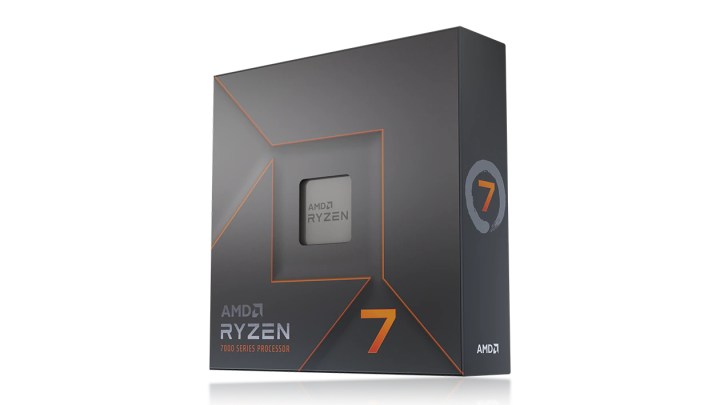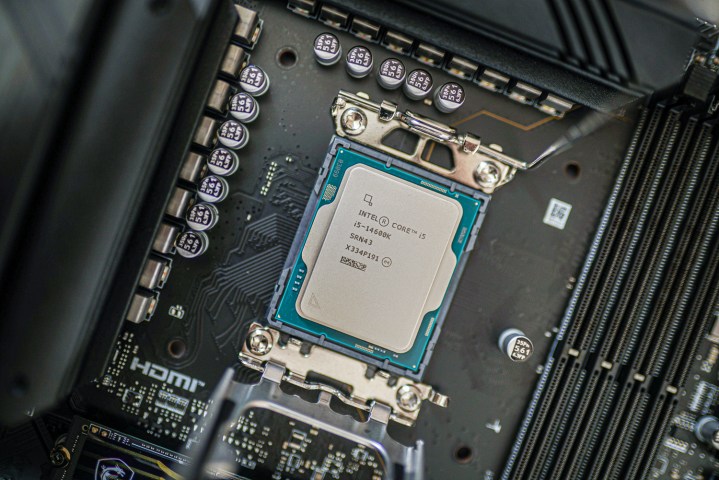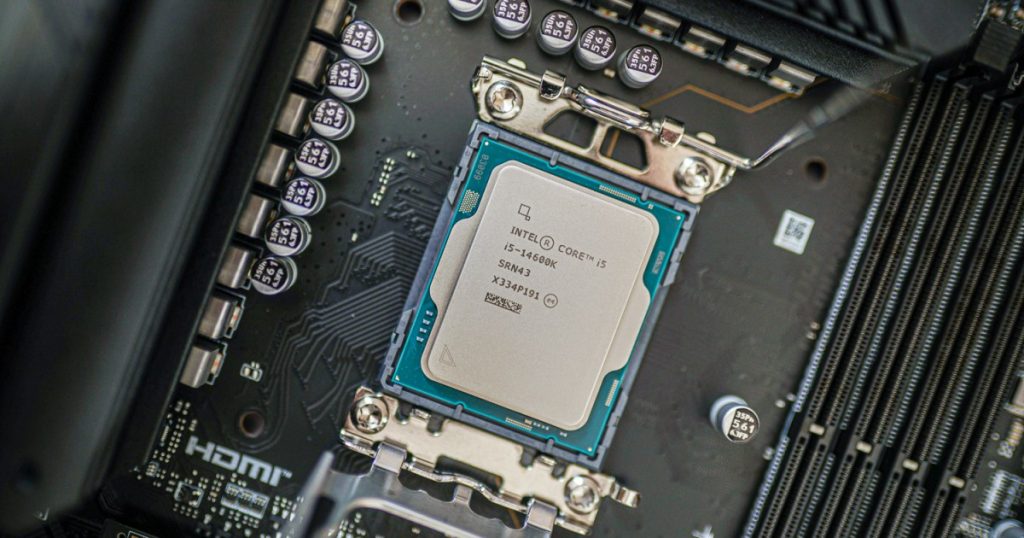If you’re in the market for a midrange processor in 2024, two top choices are AMD’s Ryzen 7 7700X and Intel’s Core i5-14600K. Both priced around $300, these processors offer high core counts for powerful computing and gaming, with clock speeds exceeding 5GHz. While not as powerful as top-tier chips, they still deliver impressive performance with lower power consumption compared to higher-end models.
But which one is better suited for your needs? If you’re considering purchasing or building a new PC in 2024, comparing these two CPUs can help you make an informed decision.
Pricing and availability
The AMD Ryzen 7 7700X debuted in September 2022 at $400, but has seen a price drop since then. It currently retails around $290 after discounts from its original price of $350. On the other hand, the Core i5-14600K was released in October 2023 with a launch price of $320, now available for $300 at most retailers.

Both processors are readily available from various retailers.
Specs
| AMD Ryzen 7 7700X | Intel Core i5-14600K | |
| Cores/threads | 8/16 | 6P+8E/20 |
| Base clock | 4.2GHz | 3.5GHz |
| Boost clock | 5.0GHz | 5.3GHz |
| L2+L3 cache | 40MB | 44MB |
| TDP | 105W | 125W/181W |
| Price | $290 | $300 |
One key distinction between AMD and Intel’s latest CPU generations is their core architectures. The Ryzen 7 7700X features eight Zen 4 cores with support for 16 threads through simultaneous multithreading, while the Core i5-14600K has six performance cores and eight efficiency cores. Although only the performance cores on the 14600K support hyperthreading, the overall thread support reaches 20.
The 14600K boasts a slightly higher boost clock and a bit more cache but comes with a higher power consumption trade-off.
Performance
Both processors have undergone extensive testing by various publications, providing a wealth of data for performance comparisons.
In gaming benchmarks, TechPowerUp and PCMag found the 14600K to be slightly faster than the 7700X across a range of titles, with the former leading in 3DMark testing. PCGamer’s review suggested the 14600K outperformed the weaker Ryzen 7 7700 in certain configurations, hinting at the 7700X’s potential if tested similarly.

Both CPUs excel in gaming at various resolutions, with high-end performance most noticeable at lower resolutions when paired with a potent graphics card.
In productivity tasks, the Core i5-14600K shines, offering superior performance compared to the 7700X. PCGamer reported significant gains in video editing efficiency and transcoding speeds with the 14600K. PCMag also highlighted the advantage of the extra efficiency cores on the 14600K in apps that leverage them fully.
Despite the 14600K’s power-efficient branding, the extra cores can consume substantial power, maxing out at 180W TDP under heavy workloads. However, when utilizing only its performance cores in games, the 14600K demonstrates efficiency, drawing under 100W consistently and below 80W in less demanding games. In contrast, the 7700X remains more power-efficient, consuming 10-20% less power in most tasks.
While the 7700X is easier to cool and cheaper to operate, the difference is not significantly drastic.
Upgrade potential
The AMD Ryzen 7 7700X serves as a base CPU for the AM5 socket’s first generation, offering multi-generational support akin to AM4. This allows for future upgrades to newer CPUs like the 7800X3D or higher core count processors without necessitating a motherboard replacement. On the other hand, the 14600K is confined to its existing generation, limiting upgrades to models like the 14700K or 14900K.
Considering Intel’s shift to a new socket with upcoming Arrow Lake CPUs, extended progression beyond the 14600K will mandate a motherboard upgrade.
7700X vs 14600K: What’s the best CPU?
The Core i5-14600K emerges as the superior CPU for users seeking the highest performance today, excelling in both gaming and productivity tasks with its overclocking capabilities. However, due to its higher power consumption, users contemplating small form factor systems may find the Ryzen 7 7700X more appealing for its cooling simplicity and lower power requirements. The AMD CPU also offers a more promising upgrade path with potential advancements in the coming years.
For gamers, the performance disparity between the two processors may not be significant, especially at resolutions like 1440p or 4K. Ultimately, the decision between the 7700X and 14600K hinges on individual preferences and requirements.
For those seeking even greater performance, the 7800X3D stands out as a top-tier gaming CPU, though the 14600K may retain an edge in many productivity tasks.
Editors’ Recommendations


